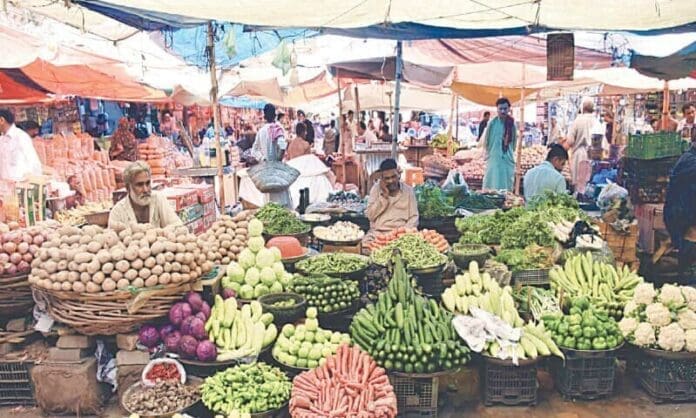Pakistan is facing a surge in annual inflation, which rose to 31.4% in September from 27.4% in August, according to data from the statistics bureau. The increase in prices is primarily driven by high fuel and energy costs that are placing a strain on the country’s economy. The caretaker government is currently navigating the challenging path to economic recovery after securing a $3 billion loan programme from the International Monetary Fund (IMF) in July. While the loan helped avert a sovereign debt default, conditions attached to it have made efforts to control inflation more complicated.
Inflation also climbed on a month-on-month basis, increasing by 2% in September compared to a 1.7% rise in August. The reforms mandated by the IMF bailout, including the lifting of import restrictions and the removal of subsidies, have contributed to the rise in annual inflation. In May, the inflation rate reached a record high of 38%.
Food inflation remains a concern, with a year-on-year increase of 33.1%. Non-perishable food items have seen a year-on-year increase of 38.4%, while perishable food items rose by 4.37%. Annual consumer inflation in urban areas reached 29.7%, while rural areas experienced a higher rate of 33.9%.
Several categories recorded significant year-on-year increases, including alcoholic beverages and tobacco (87.45%), recreation and culture (58.77%), furnishing and household equipment maintenance (39.32%), and non-perishable food items.
Furthermore, interest rates have reached a peak of 22%, causing the rupee to hit all-time lows in August. However, it made a slight recovery in September due to the authorities cracking down on unregulated foreign exchange trading.
Forecasts and Actions
In its monthly report, the Ministry of Finance expects high inflation to continue in the coming months, projected to be around 29-31%. This is attributed to increased energy tariffs and a significant rise in fuel prices. However, the report suggests that inflation is likely to ease starting from the second half of the current fiscal year, commencing on January 1. The government has already taken steps to address the issue by reducing petrol and diesel prices after two consecutive hikes, citing international petroleum prices and improvements in the exchange rate.
Pakistan has been grappling with elevated inflation since November 2021, with the target for the current fiscal year set at 21%, but averaging at 29% during the first quarter.
Impact on Society
The worsening economic conditions, coupled with rising political tensions ahead of the upcoming national election in November, have led to sporadic protests. Many Pakistanis are finding it increasingly challenging to make ends meet. However, analysts have stated that the inflation figures align with market expectations.
Analyst Forecasts
Tahir Abbas, Head of Research at Arif Habib Limited, believes that inflation has likely peaked for this fiscal year and will subsequently decline. Fahad Rauf, Head of Research at Ismail Iqbal Securities, expects inflation to ease to around 26-27% in the next few months. Both analysts believe that the higher inflation reading should not have a significant impact on monetary policy.
